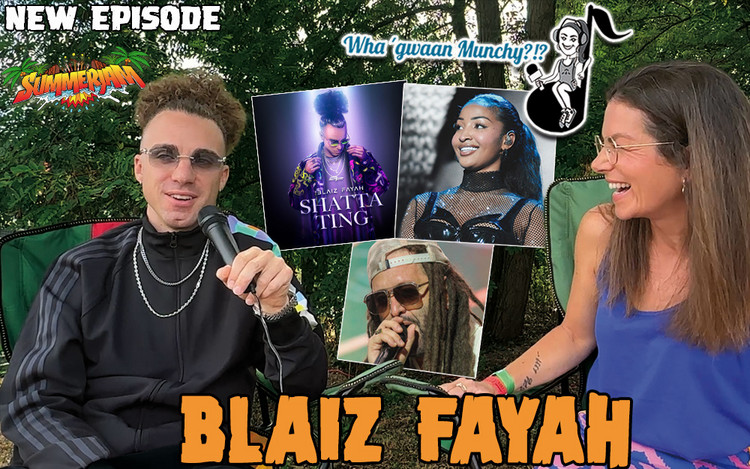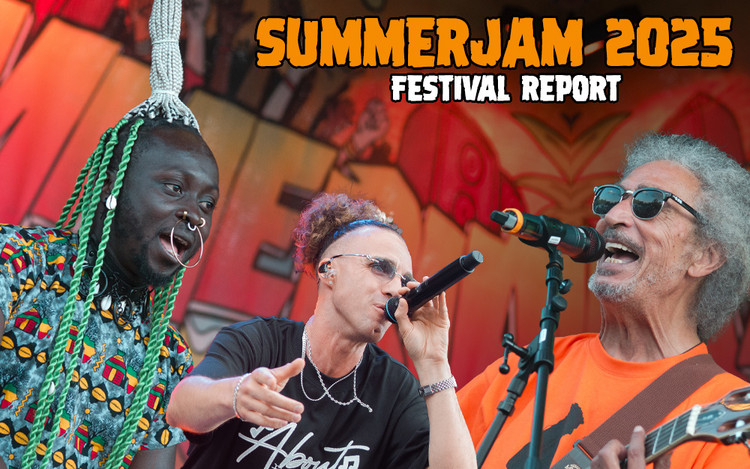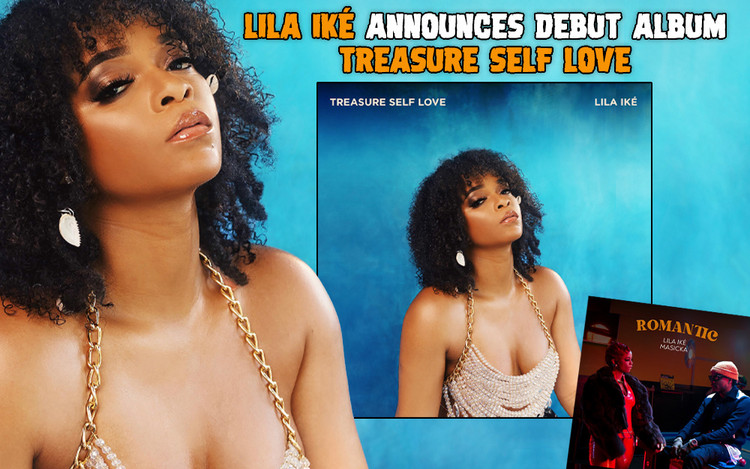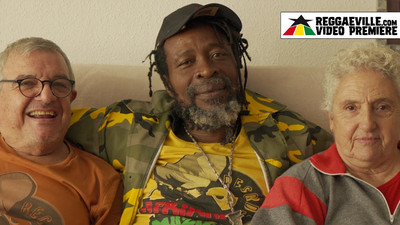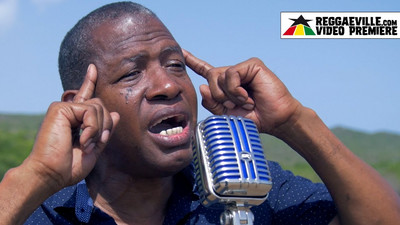Cali P ADD
Cali P - The Vizion Interview
09/30/2021 by Steve Topple
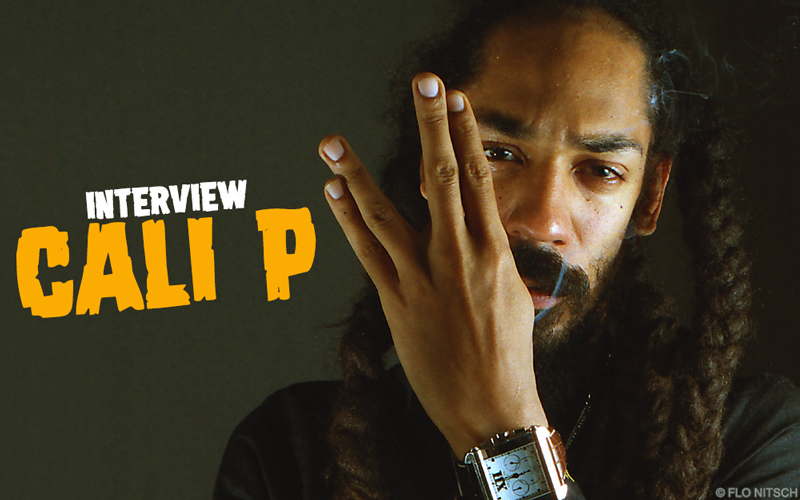
Cali P and TEKA’s new album, Vizion, is a masterclass in taking Roots as a base genre and then expanding on it to create a whole, new and inventive set of sounds. It also showcases Cali P’s skills as a performer – and as a lyricist, too: covering multiple and often complex themes and narratives. But how did the album come about? Why did the pair cover so many musical styles? And do they actually get on in the studio? Reggaeville caught up with Cali P to find out all this and more.
The Vizion album has really been over two years in the making, because you and TEKA started with the two Vizion EPs. Was it always the intention for the process to flow like this, and end with an album?
It was really open what would happen with these songs that we recorded. For us, first it was important to come together and enjoy making good music. We had a lot of time, especially the last year, to think about what would we like to do. We put out the last songs, and then we came to the decision that it would be best to let this whole project be a real Cali P/ TEKA album, that can go to the four corners of the world as a full project. Because at the end of the day this is what it really deserves and this is what it is: a full project.
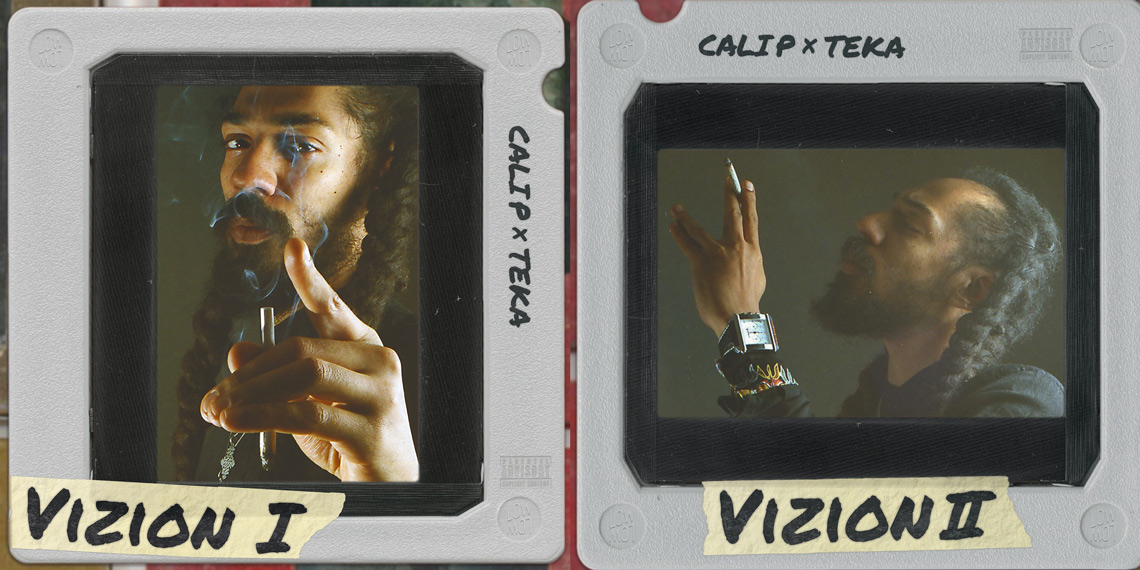
That’s interesting as it all works perfectly as a full project – even though many of the songs are from separate EPs. Also, it’s a huge melting pot of genres and styles – from Trap, to AfroDancehall, to Afrobeats-RnB, to Dub via Hip Hop and Lover’s Rock. The album has Roots at its heart but its not a straight Roots album: therefore, that makes Vizion really accessible to as many people as possible. Was that the goal?
Definitely. When you say for it to reach out to as many people as possible, it’s part of the ‘vizion’ to connect with as many people as we can. When I travel, I see a lot of different people coming to our concerts, from children to really elder people – and I really appreciate that fact. And after the last album, we wanted to do something really new, really fresh. And linking up with TEKA was the right thing to do because I feel like I know he’s also exactly on that frequency, doing something different and out of the box. The chemistry was just right and that [diversity] was the focus and the goal.
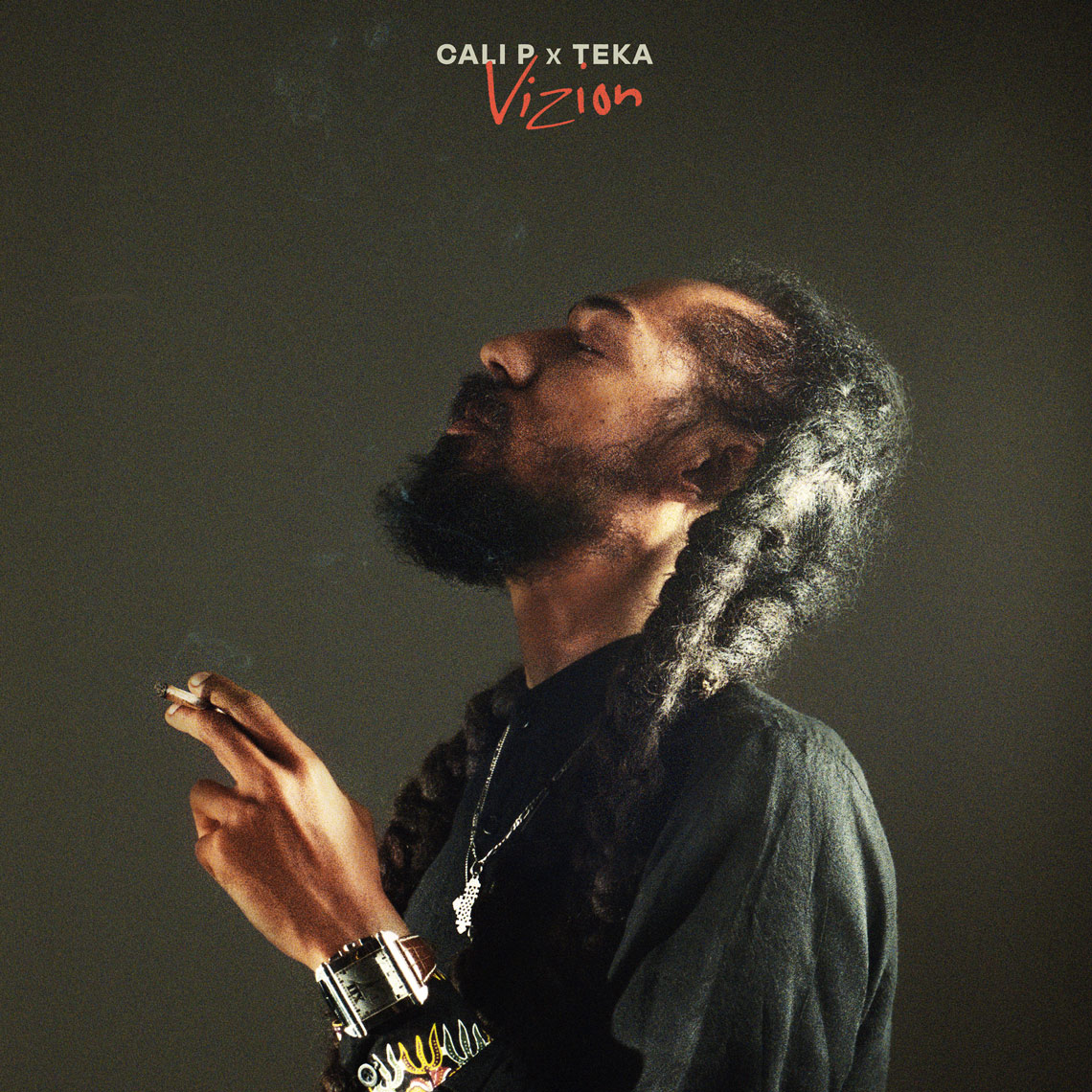
When did you and TEKA properly start working together?
The first time we recorded was in 2018 for the Vizion project. It was when the sun started shining in Berlin – spring coming to summer. That’s when we started recording: it was [the track] Care For Us.
The reason I asked was because you can hear the special relationship you and TEKA have across the album; there’s a real synergy. How do you two get along in the studio?
Yeah man – it’s very artistic. It’s two creatives coming together. It doesn’t have to be about agreeing on everything. We’re two different people. You can see that. And that’s the great thing about it. The understanding and respect are the greatest things, and we have a great time working in the studio together. It’s always fun making music together, and also everything besides the music. Because since the time we recorded the songs there was a lot more talking about how we’re going to put out these songs and what we’re doing around the releases: coming together to take photos, doing nice video sessions for the Vizion album and EPs, So, all this really, is a time to remember greatness!
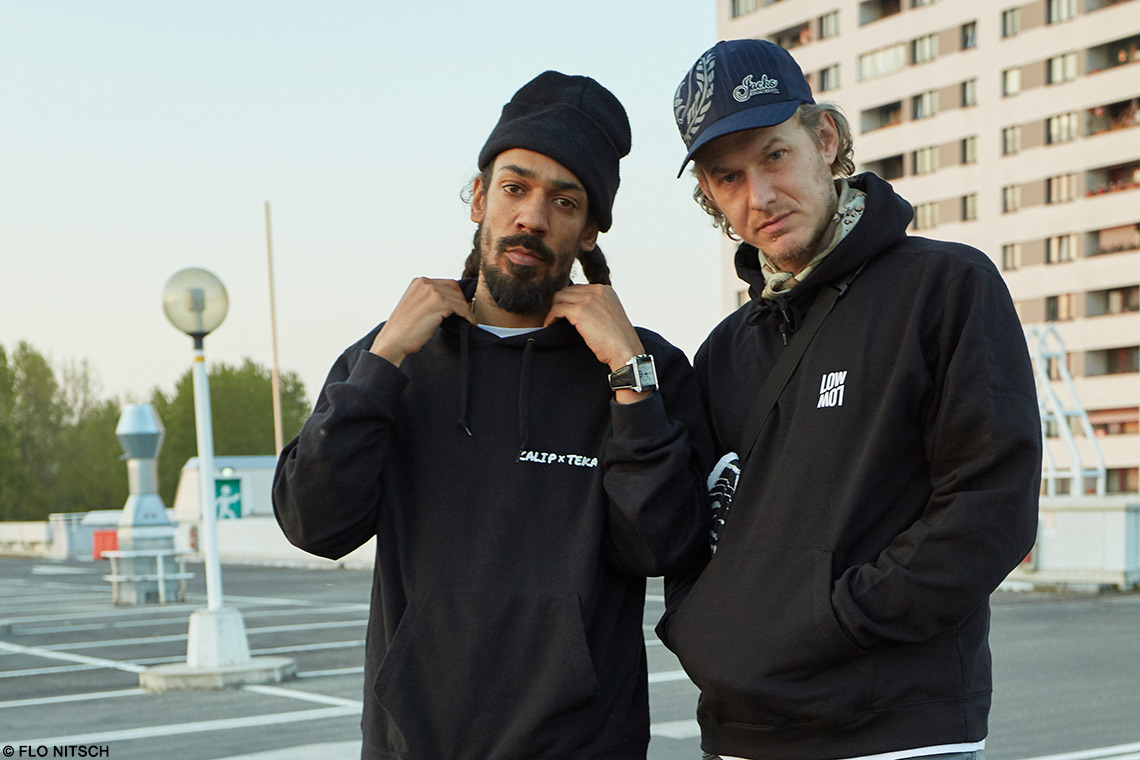
We’re kind-of almost past this pandemic phase, now. But how did it affect making Vizion?
We had the one song, Hit Like Gunshot, which we recorded in the Gambia. I had a show there at the end of February 2020, and I wanted to stay two more weeks as I know a lot of people there and I’ve been there a lot of times. Then, this whole pandemic started - so I decided to stay there, because if I went to Europe or the Caribbean it would be the same things, people sitting in their homes. So, I was sitting home in Africa. That was very good. Then a lot of things happened in the world – and that’s how we recorded Hit Like Gunshot in Gambia, and recorded a video there too. That was a special process, because while I was there, I was working closely with TEKA even though he wasn’t in Gambia. We sent the song back and forth, changed things, worked on the lyrics again and again. It’s the only song in my life I recorded several times
And how did the Stonebwoy/Seun Kuti collaboration Rise Up & Shine come about?
I’ve known Stonebwoy for a long time. We’ve been connected through social media, talking for a long time. Then we started working with the same people, and linked up more through that. Then the day I sent him the song, he really liked it and was ready to contribute with his verse. Then with Seun, we played the same festival together, Rototom in Spain. We spent a very nice day together around the hotel, speaking the whole day – and I had a very good vibe with him. We connected. I’m the son of a musician, so is he – so for both of us, music is the thing we’ve seen all the time. There’s a passion and love we share for it. We could speak about a lot of things, and we had a good connection. When I recorded the song with TEKA, we sent it to Seun and he was really happy to be on it. So, give thanks to Stonebwoy and Seun. Respect.
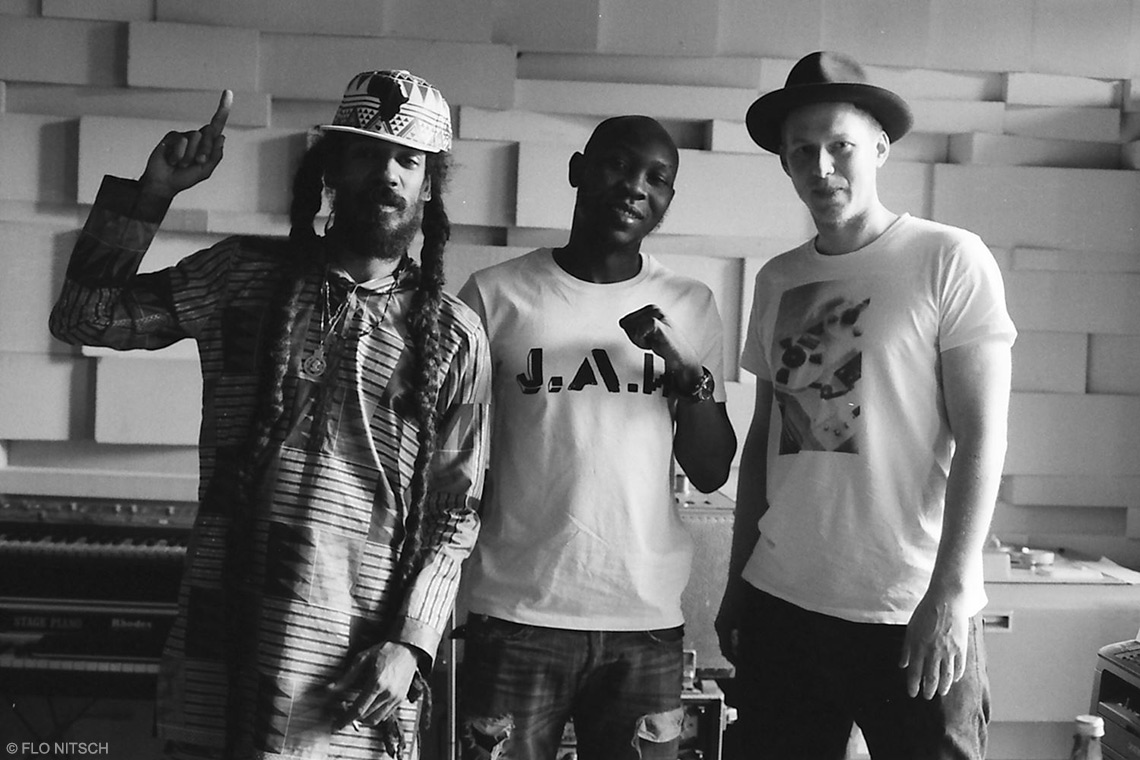
There are heavy influences from Hip Hop across Vizion: from Old Skool to Trap. Vocally, you also have the skill to do soulful straight vocals, singjay and rap really well. Has Hip Hop always been a big influence on you?
Definitely. All different music influences me, and TEKA too - as he made the riddims. But me personally? Hip Hop and RnB music, I started listening to that quite late. It was my sister who got me into it. Because she was listening to it, and one day I took her iPod and then went away on a tour with it [laughs]. And then I started listening to American music more and more. And I enjoyed it very much, because in that moment I found a whole new world and style of how people use their vocals different to Reggae and Dancehall. And for Vizion, especially, it’s also about the younger generation. Because I started doing music very young – and now, I pay attention to the younger people of today, because I feel it’s very important to have this bridge. Looking at the youths and reality, right now, I don’t see so much interest in Reggae and Dancehall, how it was when I was aged 15-20. Right now, they’d listen more to the Trap, Hip Hop and even Afrobeats is coming strong. I love that. So, instead of trying to say ‘hey, people are losing it and going the wrong way’, I try to bring it all together and work with it. I love it. It’s all about connecting everything and showing it’s basically one family. It’s music. It doesn’t stay stagnant. And I do it in my way, the Cali P way. Words, sounds and power. And show that we can find different topics to sing about it but still have it musically on a level.
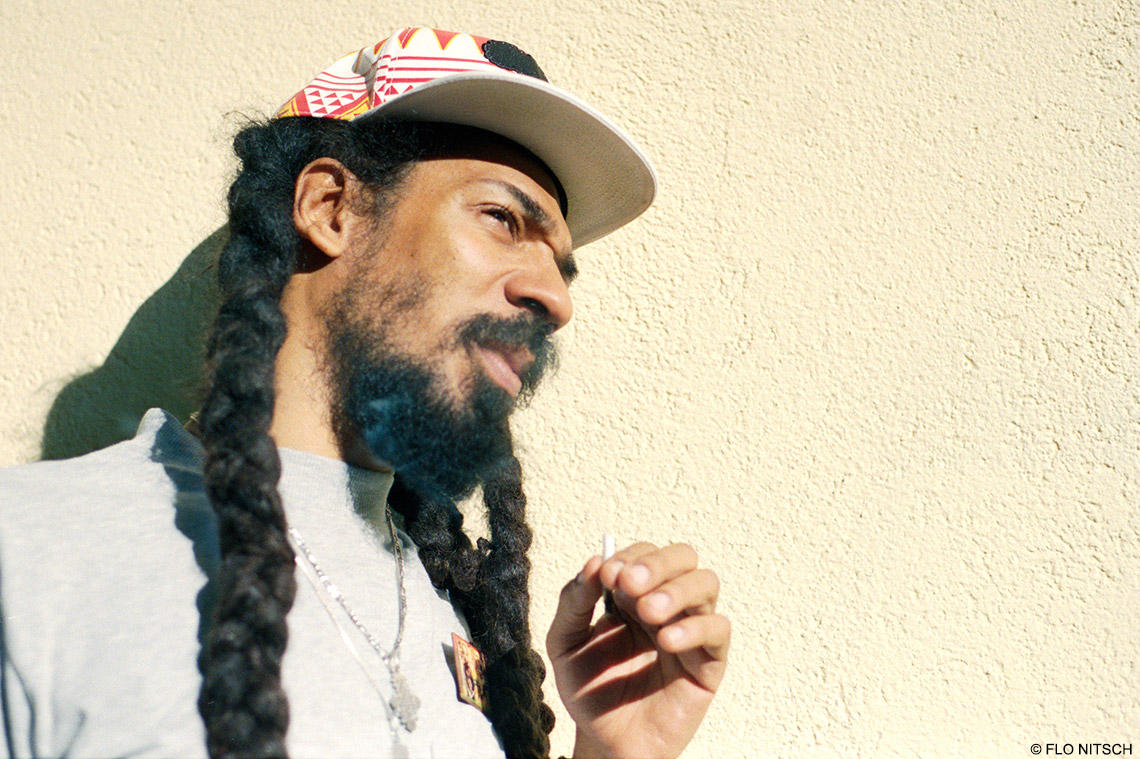
You cover a lot of topics on Vizion: stories of love, heartbreak, institutionalised racism, the system and Babylon, Rasta beliefs: it’s a broad and sweeping project lyrically as well as musically and there’s something for everyone. Was it important to have this broad selection of narratives?
This for me, is not intentional. It’s amazing that it happened, but it’s because it’s an album. I think an album is supposed to have a message, it’s supposed to be broad. It’s not about having little things for everyone. It’s not to be just about one thing, either. I would like to make an album that speaks about different things and gives you different moods – so you can listen to it for years and years to come. It’s not something you listen to two times and then it’s off and you forget about it. You can listen again and again and always find a new song that you like a little bit more, and you fall in love with the album all over again – and then another time it’s a different song! So, this is really the sense of an album for me – a full project. It’s right to speak about different things, but when you listen as a whole, it’s like one body of work. It’s not a song, there, there and there – it’s one.
When you and me spoke before in January 2019, I remember I said to you that what you did with Vizion I EP was groundbreaking in terms of merging Trap with Reggae/Dancehall music. I didn’t hear many people doing it at the time. Now, everyone’s doing it! Trap-Dancehall is its own genre. Roots artists bring in elements of Trap. How does it feel, Cali P, to be a musical pioneer [laughs]?
[Laughs] I give thanks that we can give ideas and be creative. That is something I can give thanks to the Creator for: to always give us new ideas and make us hungry and motivated to do different things, and new things again – and be inspired by life and everything that life brings with it. And give thanks to TEKA, same way – to be on that frequency, to be a man that studied his thing and be ready to buss the place when he touch the studio. I respect that highly. And for you to see that and recognise that, also feels really good. Give thanks. We’re out here working – so, it makes the heart feel good. It’s a vision. So, if it opens up for a lot of people to do that, then even greater. That’s goodness. When something is good, people go on and do it, because they feel it. It’s positive.
I want to talk specifically about Care For Us. For me, it is the best track on Vizion. Your vocal, and the lyrics are brilliant. But musically it is genius as well: merging Roots, Trap and Afrobeats. I’d call it Neo Soul due to its genre-fusing. You’ve almost created this new style of music. Is this fresh sound something we’ll see more of from you and TEKA?
It’s happening already! And hearing this from you, how could we not keep it up? Give thanks. I love music, and when I hear good music, it inspires me to do something with it. Definitely. TEKA is not over yet. Hearing that, I know he’ll be like ‘I need to go and build a riddim tonight!’.
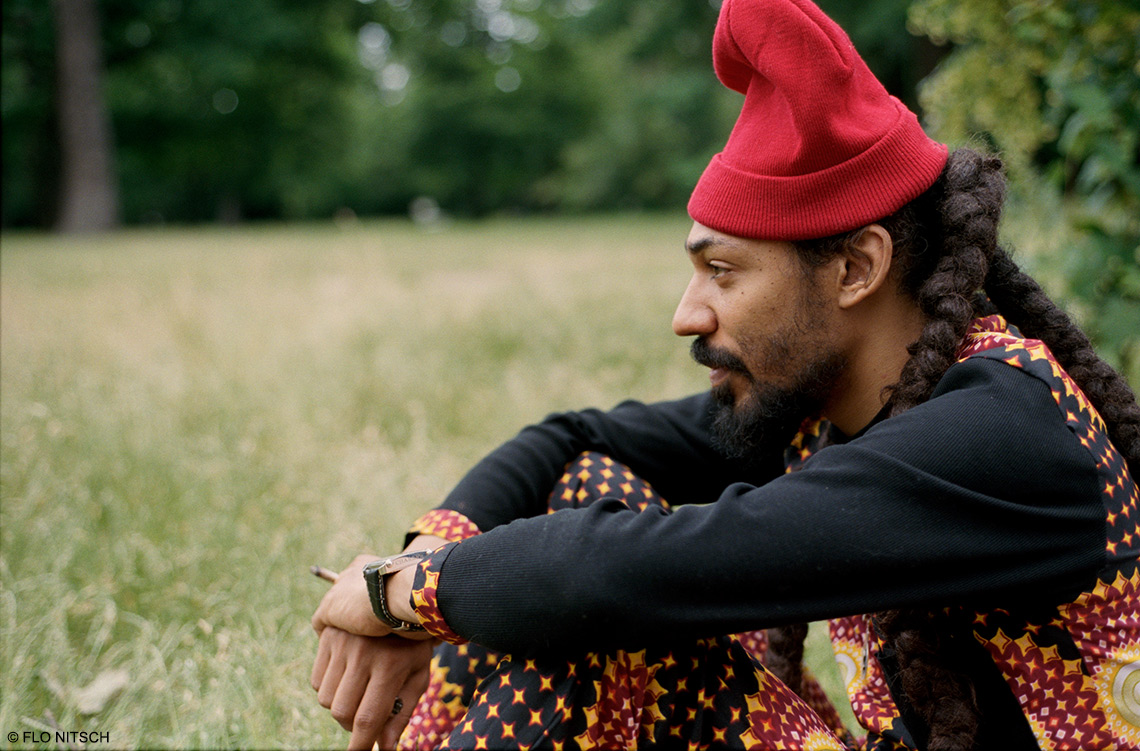
Is there one thing you hope listeners will take away from Vizion?
For me, I’d be happy if people feel the warmth, the love and passion that’s in it. When somebody feels this and recognises this and can enjoy this – then I’m really happy. If someone gets motivated from the album to do better in life, and get up in the morning and do their thing, then definitely – that’s a great thing for me. And if they stream it too [laughs].
Where next for Cali P and TEKA?
It’s always open. I just remembered one thing I really liked about working on this project. I had a few riddims TEKA had sent me that I’d been working on for a while. Still, I came to Berlin and wrote the songs and we recorded right here. But also, during that time I would come and say to TEKA, y’know – ‘at the moment I’m enjoying such-and-such music, it really inspires me’ and he was really quick to hear that, sit down and create new riddims at the time we were working. It created songs like Heartbreaker and Rise Up & Shine. These were really just in a moment. I think I’m really blessed to be working with people who can transform these ideas into reality. So, I think we only have greater things coming.
I’m sure – and it’s brilliant to be able to hear the full Vizion now. Cali P – thank you so much for speaking to Reggaeville.
Yeah man, thanks Reggaeville and Mr Topple – respect. Big up!




